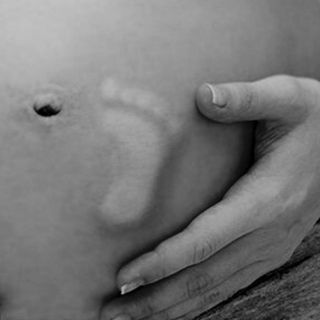
Study: Having Sex More Frequently Linked to Later Menopause
Women’s bodies ‘choose’ to stop ovulating if pregnancy is unlikely owing to a lack of sexual activity, researchers suggest.

Women who participate in sexual activity more frequently may experience menopause later rather than sooner, a new study suggests.
Published in the journal Royal Society Open Science, researchers from University College, London, analyzed information about 2,936 women, aged 42 to 52, who live in the U.S. After controlling the results to account for factors such as ethnicity, smoking habits, and age when periods started, researchers found that women who engaged in sexual activity weekly were 28% less likely to experience menopause at any given age compared with those who engaged in sexual activity less than once a month. (The study defines sexual activity as sexual intercourse, oral sex, touching, or self-stimulation.) Additionally, women who had sexual intercourse monthly were 19% less likely to experience menopause in the 10-year period they were studied compared with those who had sex less than monthly.
“During ovulation, the woman’s immune function is impaired, making the body more susceptible to disease. Hence, if pregnancy is unlikely owing to a lack of sexual activity, then it would not be beneficial to allocate energy to a costly process, especially if there is the option to invest resources into existing kin,” the researchers say in the study, explaining the findings. On the other hand, if a woman has sex regularly that could lead to a pregnancy, the body ‘decides’ it may be better to invest in maintaining regular menstrual cycles for longer.
Think of it like a biological energetic trade-off the body makes between investing energy into ovulation and investing elsewhere. “Ceasing fertility to invest more time in the family is known as the ‘grandmother hypothesis.’ The basis of this is that menopause originally evolved in humans to reduce reproductive conflict between different generations of females, and now allows them to increase their inclusive fitness through investing in their grandchildren,” Healthline explains.
These findings are based on data collected from women who were either perimenopausal (indicated by hot flashes and changes in period cycles) or premenopausal (having regular cycles with no perimenopause or menopause symptoms). The women answered questions about their health, lifestyle, members of their household, and their sexual activity in several interviews with the researchers over a period of 10 years.
Menopause is said to occur when the number of mature eggs in the ovaries drops beneath a critical threshold, usually when a woman is in her 40s or 50s. Some of the timing of menopause is genetic, but factors such as smoking and overall health are also important. The latest study seems to suggest a correlation between how much sex a woman has as she approaches the natural age of menopause, and when menopause actually sets in.
But, researchers are yet to establish the precise biological mechanism through which the body ‘decides’ to stop or keep on ovulating based on the likelihood of pregnancy in premenopausal women.
One possibility is that sexual activity stimulates the release of estrogen, which contributes to the complex series of chemical signals that result in an egg being released each month, The Guardian reports. But the study does not test or confirm this directly. Another possibility could also be how often a woman has sex and her age at menopause are both governed by a third factor not studied by the researchers.
Related on The Swaddle:
Post‑Menopausal Libido Is More Complex Than Just Hormones
All the caveats to the study
It’s important to view these findings keeping a few things in mind.
Menopause is an inevitability. All women naturally menopause eventually. For most, it happens between their 40s and 50s, but there is a lot of variation based on several factors. This study was an attempt to study this variation, looking at it from an evolutionary perspective.
That is, could it be that a woman’s body senses it is no longer beneficial to continue menstruating if she is not likely to get impregnated?
The study’s findings further this hypothesis, but that’s all they do, given how little science knows in all certainty about women’s bodies. They suggest a correlation between how often women had sex and their age at menopause. They do not prove that having more sex delays menopause because many factors affect whether or not someone has sex, and also when menopause sets in.
For instance, a perimenopausal woman who is just beginning to experience changes in her menstrual cycles may experience anxiety or vaginal dryness, both common symptoms of menopause, which may reduce her sex drive. Overall better health, not smoking and higher education levels are also linked with a later menopausal age.
“Women who are having frequent sex because they enjoy it can consider this a potential fringe benefit. Women who are having sex less frequently should not necessarily worry,” Dr. Holly N. Thomas, an assistant professor at the University of Pittsburgh, told Healthline. But most importantly, women who struggle with premature menopause should not conclude that having more sex could have kept them fertile for a few more years.
At best, this study is a good reason to make changes towards a better sex life, which we know, improves the overall quality of life.
Pallavi Prasad is The Swaddle's Features Editor. When she isn't fighting for gender justice and being righteous, you can find her dabbling in street and sports photography, reading philosophy, drowning in green tea, and procrastinating on doing the dishes.
Related


Retinoids Do Help Reverse Signs of Aging, but Overuse May Seriously Harm Skin
